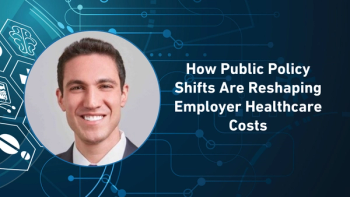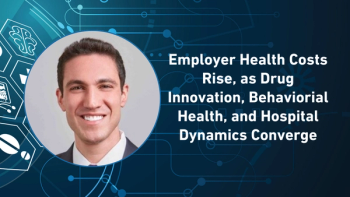
How Smart Packaging and Emerging AI Tools Are Shaping the Future of Cold Chain Integrity
In a video interview with Pharma Commerce, Kirsten Newquist, Identiv’s CEO, and Mark Sawicki, PhD, Cryoport Systems’ president and CEO, explain how embedded product intelligence—paired with cautious, strategic adoption of AI—is redefining pharmaceutical cold chain reliability and supply-chain decision-making.
In an era of increasingly temperature-sensitive pharmaceuticals and personalized therapies, embedded product intelligence is becoming central to maintaining cold chain integrity. According to industry experts, modern smart packaging goes far beyond digital identification. By integrating embedded sensors—particularly temperature sensors, along with humidity and pressure monitoring—manufacturers gain the ability to track environmental conditions in realtime throughout the supply chain. When combined with active-sensing technologies and RFID, these sensors provide continuous visibility into the status of high-value biologics, enabling rapid intervention if temperatures drift outside acceptable ranges. This capability is especially crucial as personalized medicines and organic compounds continue to dominate pharmaceutical innovation, each requiring stringent handling to preserve safety and efficacy.
Smart packaging technologies not only strengthen compliance but also act as a potential “game changer” by allowing logistics teams to correct issues immediately, returning products to appropriate temperature conditions before quality is compromised. This real-time monitoring significantly enhances cold chain reliability, reduces waste, and supports the expanding global distribution of sensitive therapies.
On the technology adoption front, AI remains in an exploratory stage for most of the industry. While some emerging companies are heavily investing in AI to improve target identification, safety analytics, and development processes, many manufacturers are still cautious. Experts note that the sector is largely in “wait-and-see” mode, assessing whether current AI solutions can demonstrate clear return on investment. For now, AI is primarily being used as a secondary validation tool—supporting risk management, quality checks, qualification activities, and supply chain optimization. Companies remain open to adopting AI more fully but expect to be fast followers rather than early investors, prioritizing measured, evidence-driven implementation.
A transcript of their conversation with PC can be found below.
PC: From a tech perspective, what role does embedded product intelligence play in maintaining cold chain integrity? On the other hand, to what extent do you believe AI should be used at this particular point in time?
Newquist: In addition to a digital ID, you can also embed sensors into the smart packaging, so you can embed temperature sensors, humidity sensors, pressure sensors, and obviously, probably the most critical for cold chain management is temperature sensors.
What this really enables you to do—especially if you're using active-sensing technology in combination with RFID—is really be able to track in real time the temperature of these very expensive, organic pharmaceuticals that are really driving the industry growth today. I think it's absolutely a critical part of what smart packaging can do, and as you said, the rise of personalized medicine, the rise of all these organic compounds that are being developed by the pharmaceutical industry, they absolutely do require very careful monitoring throughout the supply chain.
I think this technology that enables not only the digital identification—but can also include sensors to monitor temperature—can be a real game changer, by ensuring that these drugs are being taken through the supply chain at the appropriate temperature. By getting this information in real time, if they see that it's not being maintained at the proper refrigeration level, there’s actually things that they can do to ensure it gets back into refrigeration to really maintain the compliance that they need for the right temperatures. We think that's a really important part of the smart packaging trends.
Sawicki: When you sit down and you talk to the industry around AI, it's really in an exploratory phase today. There're a few companies that have sprung up that are really betting the farm on AI as it relates to target identification, safety, and elements, but it's still really early, and I think most folks are kind of wait and seeing on the validity of AI before they step into it in a really aggressive way.
We're much of the same—we're observing and we're paying attention, but we'll be a fast follower. We're not going to be investing huge sums in AI until we can see a clear and defined ROI on that investment, so we're really looking at it right now just as a second check on things like risk management, validation, qualification-related activities, and supply chain optimization, just as a second check and balance against our human thought processes around it.
Newsletter
Stay ahead in the life sciences industry with Pharmaceutical Commerce, the latest news, trends, and strategies in drug distribution, commercialization, and market access.




